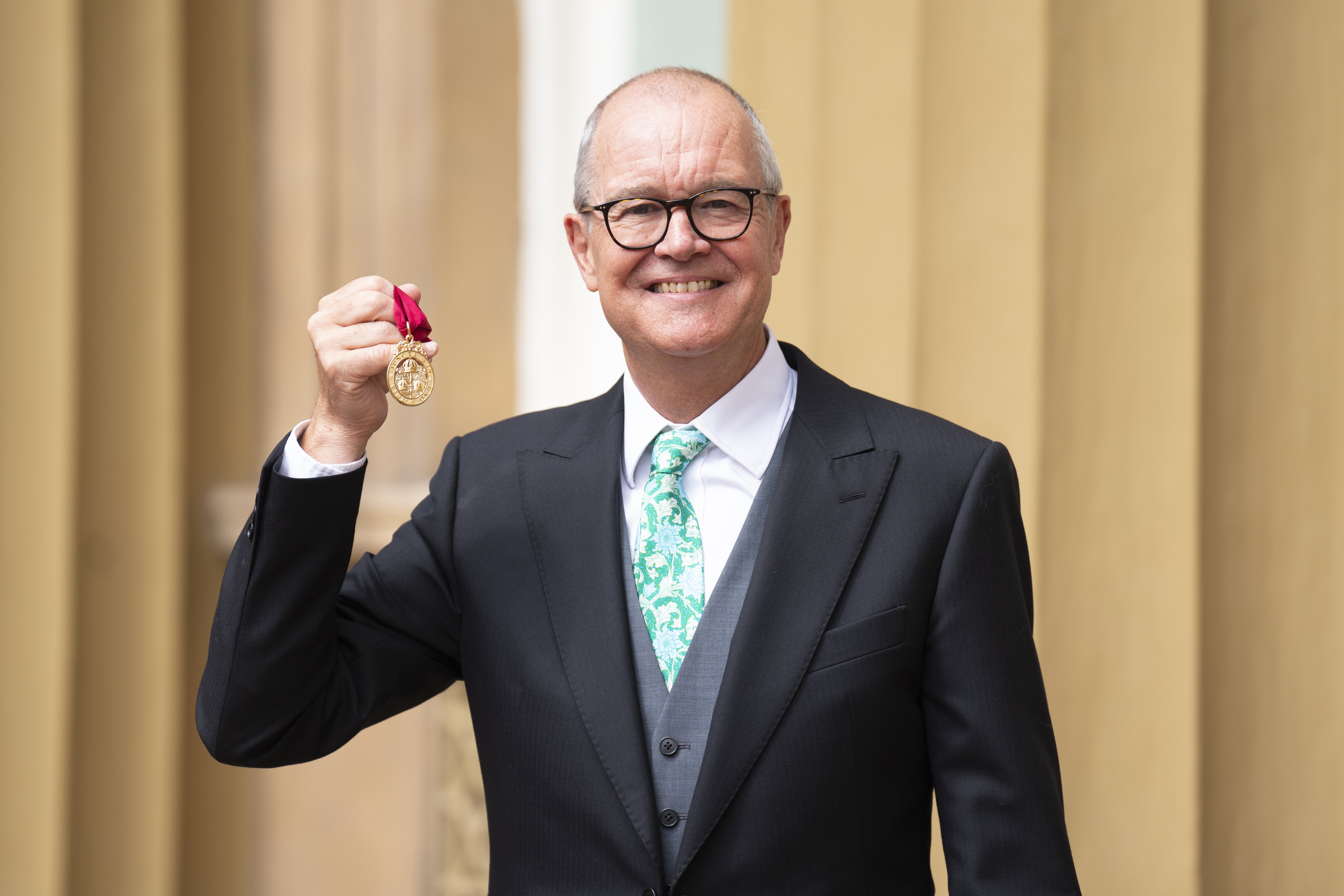Vallance recalls ‘darkest days’ and vaccine that ‘changed course of pandemic’
Sir Patrick Vallance collected an honour from the Duke of Cambridge at Buckingham Palace for helping to lead the UK’s battle against coronavirus.

The darkest days of the pandemic came amid the “huge uncertainty” about the fast-spreading virus, including when the Prime Minister was struck down with Covid-19, the Government’s chief scientific adviser has said.
Sir Patrick Vallance recalled those “difficult” times as he said there will be further waves of infection but the nation should now be in a better place to deal with it.
On partygate, the 62-year-old said: “It was really important at all stages that everyone stuck to the rules. It works when people stuck to them. It is disappointing that that wasn’t the case.”
Sir Patrick, who was one of the key scientists who updated the public through televised briefings during the pandemic, said: “The darkest days were in many ways the early days of the pandemic when obviously lots of people became very ill quite quickly – obviously people in the Government fell ill and the Prime Minister was very ill and those were very difficult days.
“It was mostly about the uncertainty. We did not know much about the virus. We did not know much about exactly how it spread.
“We did not know there were going to be vaccines and treatments.
“We hoped there would be and we were trying to work on them but we just did not know. There was huge uncertainty at that time and that was most difficult.”
Sir Patrick was speaking after collecting an honour from the Duke of Cambridge at Buckingham Palace for helping to lead the UK’s battle against coronavirus.
William joked with him that this was “second time lucky” as he presented Sir Patrick, who was originally knighted in the 2019 New Year Honours list, with an upgraded award which makes him a Knight Commander of the Order of the Bath.
This recognises the work of senior military officials and civil servants.
Sir Patrick said the most positive time during the pandemic was when the UK became the first place in the world with an approved vaccine.
He said: “It was a real moment where we thought ‘this is going to be a way out of this’ even though it was over a year before it was finally a way to getting out of it.
“It was the thing that changed the course of the pandemic.”
Sir Patrick believes that winter could be a testing time but the NHS leadership is aware of the potential task it may face in dealing with infections and is preparing itself for it.
He said: “We are in a very different position (now) because of the high degree of vaccination and immunity in the population.
“We will see I’m afraid further waves of infection, maybe next winter.”
Sir Patrick believes there will “probably be an annual vaccine for people over a certain age” that could be introduced and eventually the situation will be one where it is “more like a flu wave that we get every winter”.
He added: “It will be difficult because there will be some people who are really affected by it but the key to this is proper vaccination and proper management in the health service.
“Then gradually over the next two or three years, I think this could settle into a background infection but we are not quite there yet.”
Sir Patrick has much praise for “the most amazing scientists and experts” who helped to ensure there was evidence-based commentary during the pandemic at a time when people were dealing with some “horrific” things.
He added: “It has been one of those experiences where you realise the importance of other people, humanity and the goodwill, hard work, passion and expertise.
“It is nice to feel trusted and I am grateful for that.
“What I have tried to do and what others have tried to do is to make sure we are as honest and straightforward as possible about how we saw the situation at any given moment in the pandemic and to be as realistic as possible – both in terms of treatments and vaccines coming along but also on what the course of the pandemic was.”
Sir Patrick’s other roles include being the national technology adviser (NTA) and head of the Government Science and Engineering (GSE) Profession.
His personal research has focused on diseases of blood vessels and endothelial biology.
Sir Patrick joined GlaxoSmithKline (GSK) in May 2006 as head of drug discovery after a career as a clinical academic.
He was president, R&D, at GlaxoSmithKline from 2012 until 2017 during which time more than 14 new medicines were approved for use worldwide, for diseases ranging from cancer to asthma and HIV.
Sir Patrick has more than 20 years’ experience of basic and clinical research, and was a consultant physician in the NHS.
His research spanned from work on medicinal chemistry and structural biology through to cellular work, studies in humans and use of large electronic health record databases.
Bookmark popover
Removed from bookmarks